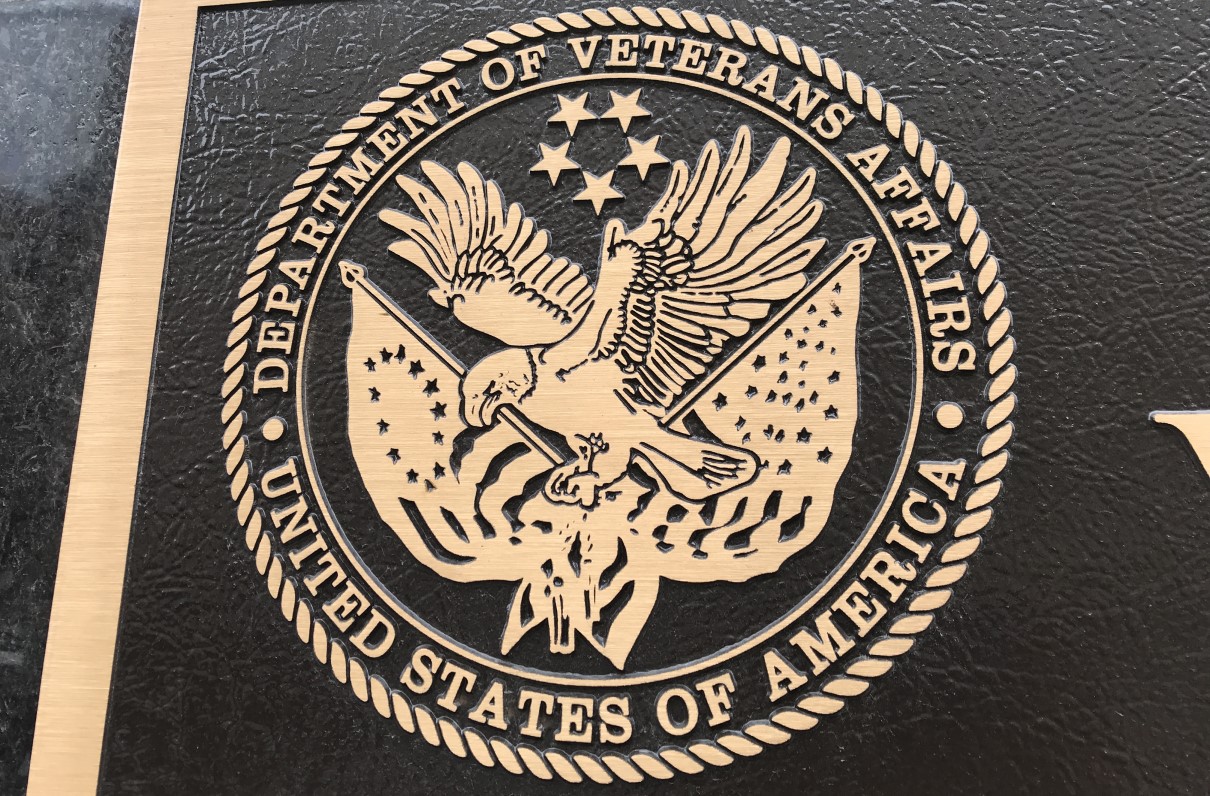The president signed the Senator Elizabeth Dole 21st Century Veterans Healthcare and Benefits Improvement Act into law Jan. 2, after years of arduous advocacy by MOAA and more than 40 other veterans organizations. This landmark bipartisan bill, representing more than 90 pieces of legislation developed throughout the 118th Congress, provides significant relief to veterans and their families by expanding benefits, enhancing services, and improving long-term care solutions.
“This is a momentous day for the veterans’ community and for the health and well-being of our veterans, their caregivers, and survivors,” said MOAA President and CEO Lt. Gen. Brian T. Kelly, USAF (Ret). “The Dole Act’s passage is a testament to what can be achieved when advocates, policymakers, and the veterans, their families, survivors, and caregivers work together to support those who have served.”
Leaders of both the House and Senate Veterans’ Affairs committees in the 118th Congress — chairmen Rep. Mike Bost (R-Ill.) and Sen. Jon Tester (D-Mont.), along with ranking members Rep. Mark Takano (D-Calif.) and Sen. Jerry Moran (R-Kan.) — played pivotal roles in advancing the Dole Act to its successful conclusion.
Bost praised the law for addressing veterans’ needs, not adding to government bureaucracy.
“From expanding job training opportunities for transitioning servicemembers and veterans, to improving mental health care for caregivers, to protecting veterans’ healthcare options for day-to-day services to more elderly care options, and much more in between – I know this legislation will make a difference for veterans and their families,” Bost said.
[RELATED: Leadership Shakeup, New Budget Battles Coming to VA in 2025]
The act honors former Sen. Elizabeth Dole, a lifelong advocate and champion for veterans and their caregivers. It advances her efforts and addresses some of the most critical issues facing veterans, their caregivers, and the broader community today.
Some key benefits of the legislation:
Home Care and Caregiver Support
- Full Coverage for Home Nursing Care: Increases the VA’s share of home nursing care costs from 65% to 100%, expanding access to these essential services.
- Mental Health Grants for Caregivers: Provides grants and contracts to mental health service providers for family caregivers.
- Streamlined Application Processes: Reduces bureaucratic hurdles for caregivers seeking benefits.
- Expanded Support Programs: Offers training, financial aid, and mental health resources for caregivers not eligible for VA’s Program of Comprehensive Assistance for Family Caregivers (PCAFC).
- Home Health Aides Pilot Program: Launches a pilot program to hire nursing assistants for in-home care in underserved regions.
[RELATED: VA to Resume New Electronic Health Record Rollout in Mid-2026]
Fighting Veteran Homelessness
- Higher Per Diem for Transitional Housing: Boosts rates from 115% of costs to 133%, with higher rates for regions with elevated costs.
- Basic Necessities for Unhoused Veterans: Allows the VA to supply bedding, hygiene products, food, and transportation to medical appointments.
- Prevention Efforts: Strengthens initiatives to identify veterans at risk of homelessness and includes funding for job training, mental health services, and substance abuse treatment.
Access to VA Health Care
- Home- and Community-Based Care: Allocates funds for in-home care services and related items.
- Same-Day Scheduling: Mandates a plan for same-day appointment scheduling.
- Dental Benefits: Establishes a pilot dental program for veterans with heart disease and improvements to existing programs and services.
- Telehealth Services: Enhances telehealth options for rural and underserved veterans.
- Rural Ambulance Coverage: Provides reimbursements for ambulance transportation in remote areas.
- Mobile Mammography: Expands funding for mobile mammography services.
- Mental Health Services: Strengthens reporting requirements on VA mental health services and suicide prevention efforts, while increasing non-VA mental health support options for veterans in the community.
Education, Employment, and Economic Benefits
- Education Benefits: Enhances the Fry Scholarship and the GI Bill housing stipend.
- Oversight of Institutions: Tightens oversight of educational providers serving veterans.
- Technology Training: Expands access to high-tech training and education programs for veterans transitioning to civilian careers.
- Home Loan Adjustments: Introduces changes benefitting Native American veterans.
- Updated Burial Allowances: Broaden eligibility for burial allowances and revises definitions for surviving spouses.
[MORE FROM MOAA: Your Guide to Military Burials]
More Work Ahead
This achievement is a direct result of persistent advocacy from MOAA members and partners. Your efforts, including letter-writing campaigns and active engagement, made the Dole Act a reality. If you or your family will benefit from the legislation, MOAA encourages you to share your story by contacting msc@moaa.org.
While the signing of the Dole Act is a significant victory, the work is far from over. MOAA remains committed to ensuring the law’s effective and efficient implementation.
With the new Congress, we have new opportunities to advocate for the needs of our uniformed services and veteran communities. MOAA will continue to be a leader in ensuring those in and out of uniform receive the care, support, benefits, and recognition they earned.
Your efforts are critical to our success. Stay tuned for more information on our advocacy priorities for this year, and please stay continuously engaged with our Legislative Action Center to let your lawmakers know what is important to you.
When MOAA Speaks, Congress Listens
Learn more about MOAA’s key advocacy issues, and contact your elected officials using our messaging platform.

